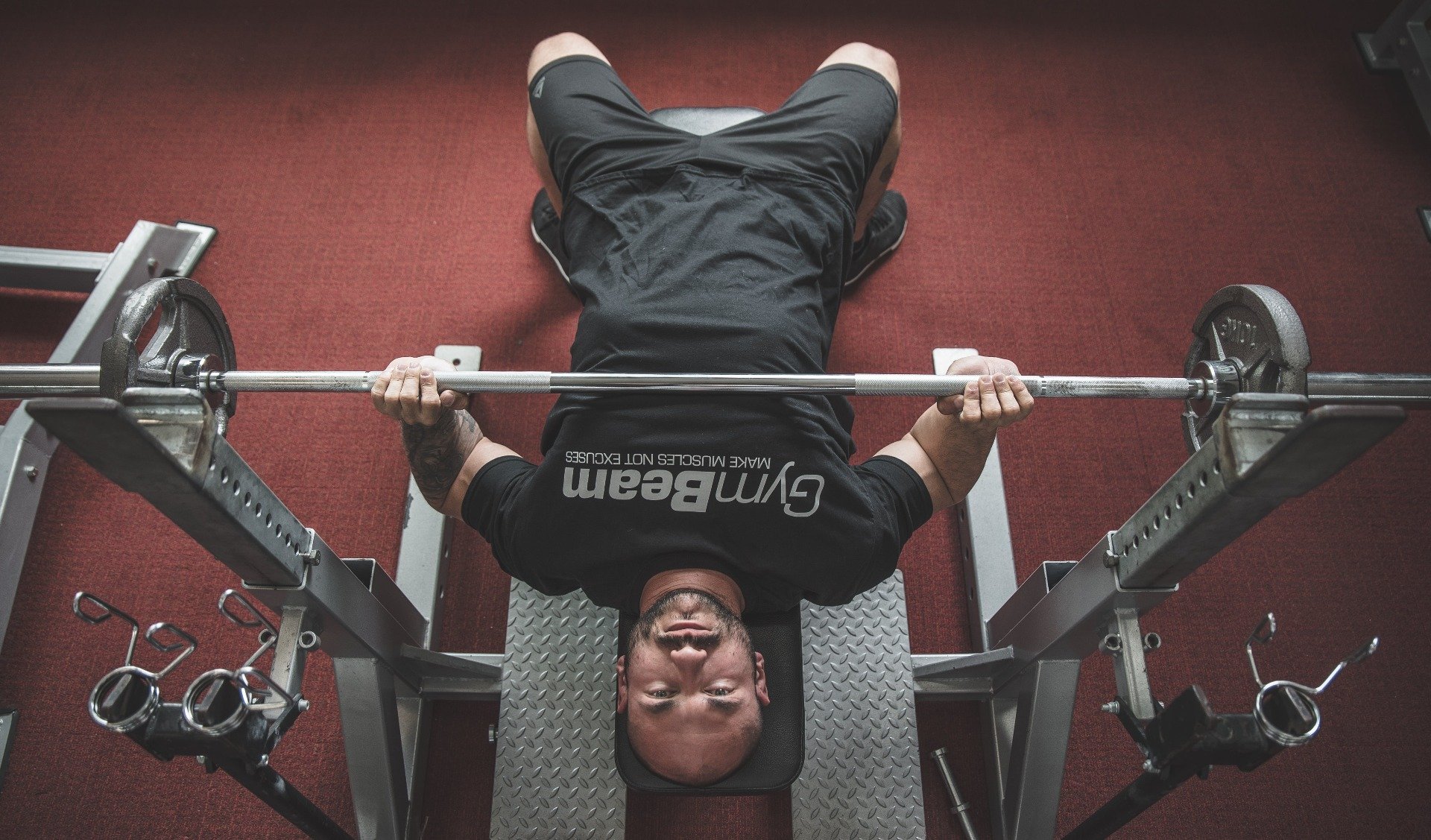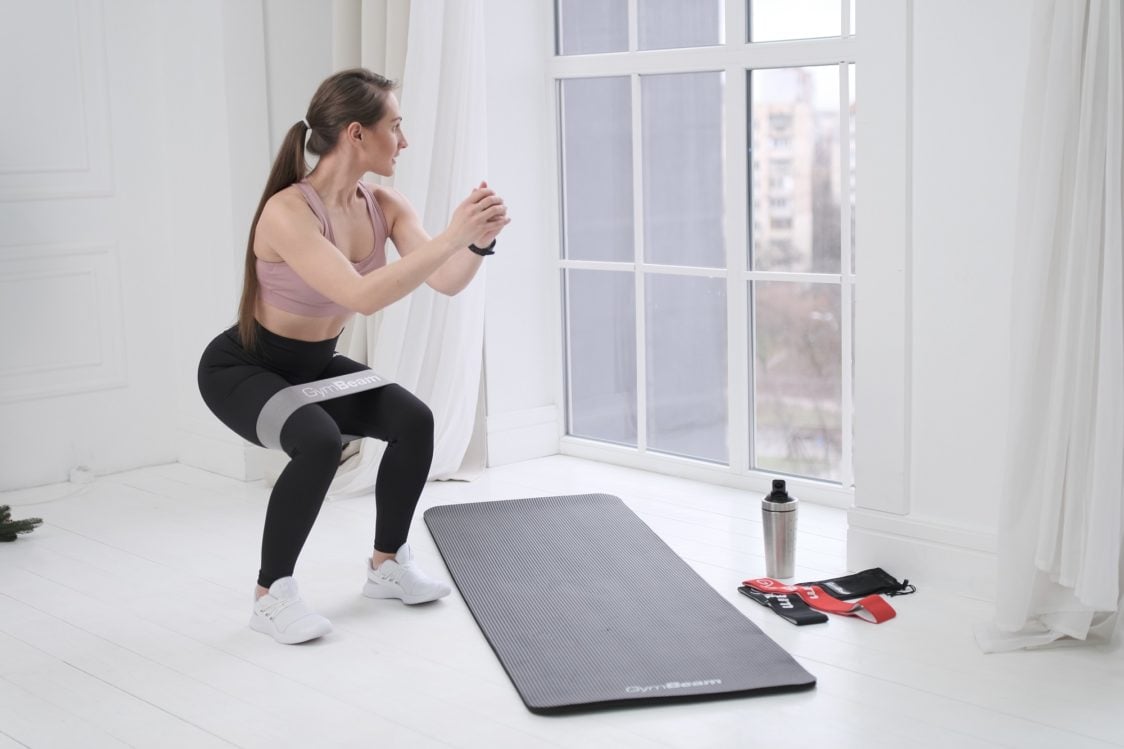Table of Contents
Regular workout is the best way to strengthen your body, but also your mind. After all, if you desire any change in your life, exercise can be a really good start to achieving this goal. The most common reason why we start exercising is to try to improve our physical condition. With regular exercise:
- we burn calories
- we strengthen muscle mass
- we strengthen the immune system
- we tone the physique

However, workout has many more benefits and some of them are guaranteed to surprise you! Check out 10 unexpected benefits of workout that will definitely improve your life!
1. It induces a feeling of happiness
Regular workout and exercising are a great way to improve your mood and reduce your feelings of depression, anxiety and stress. Exercise causes changes in the parts of the brain that regulate these unpleasant states. It primarily helps increase the brain’s sensitivity to the hormones serotonin and norepinephrine, which relieve feelings of depression. Several studies have shown that regular exercise alleviated the symptoms of depression in clinical patients. Many clinics that focus on treating these patients therefore use the method of workout as one of the possible treatment processes. It has been confirmed that in some cases, exercise can be as effective as antidepressants in treating depression. [1] [2] [4]
In addition, exercise increases the production of endorphins, which are known to help create positive feelings and reduce the perception of pain. Your mood will additionally be improved regardless of the intensity of exercise. Even slow movements during yoga or Pilates can wash away a sufficient amount of endorphins. [4] This is also evidenced by a study in which participants suffering from depression regularly exercised with varying intensity and showed a rapid reduction in the symptoms of their disease. In another important study, the researchers again divided the participants into two groups. One group trained regularly throughout the research, while the other group stopped exercising regularly after 2 weeks. The group that stopped exercising experienced an increased increase in negative energy and mood. [5]

2. It strengthens brain function
Exercise can improve brain function and protect memory or thinking ability. Regular movement increases the heart rhythm and supports the flow of blood and oxygen throughout the body. It is the transmission of these essential substances that has a great influence on the proper function of the brain and the growth of brain cells. It has been shown that exercise causes enlarging the size of the hippocampus, the part of the brain, which is vital for memory and learning. It is especially important to support it at an early age, but we should not forget it in old age either. [1] [7]
It is aging along with oxidative stress that promotes changes in the structure of this part of the brain. Researchers believe that regular exercise can help prevent these unwanted changes. So far, they have found that exercise, thanks to the protein derived from brain-derived neurotrophic factor (BDNF), improves blood flow to the brain, which nourishes the growth of new blood vessels and even new brain cells. BDNF triggers the growth of new neurons, helping to repair and protect brain cells from degeneration. In addition, several studies have shown that exercise also reduces brain changes that cause Alzheimer’s disease and schizophrenia. Further research has confirmed that exercise can strengthen memory, improve concentration and increase the ability to solve problems at an early age. [3] [6] [7]
You might be interested in these products:
3. It can prolong your life
It is well known that exercise is really necessary for our body and spirit. But what you may not know is that regular exercise can prolong your life. Evidence of this was provided by a study that confirmed that regular exercise with moderate intensity can slow cell aging. During aging, the cells gradually divide, regenerate and divide again. However, this constant cycle shortens the telomeres, which serve as such protective caps at the end of the cell’s chromosomes. The researchers in this study looked at how exercise affects this shortening. Therefore, samples were taken from healthy participants before and after a 45-minute intensive training on a stationary bicycle. They found that exercise actually increases the levels of molecules that protect telomeres and slow down their shortening. Therefore, exercise is based on the fact that exercise slows down the aging of cells and can therefore prolong our lives. [8]

Proof of this hypothesis is another study in which up to 122,000 people participated. They underwent stress testing on a treadmill. The main focus of the study was to determine the level of CRF. CRF is a measure of how your heart and lungs pump blood and oxygen to your body during exercise (Cardiorespiratory fitness). The better off you are at fitness, the higher the CRF level. The age of the research participants ranged from 18 to 80 years. The researchers found that almost every participant confirmed an increase in CRF, which caused better blood flow and oxygenation of the cells in the body, and stopped their aging. [8]
4. It improves skin health
Did you know that the skin is the largest organ of our body? Regular exercise increases blood flow to the skin and supplies it with oxygen and nutrients that improve its health and even help heal small wounds faster. In addition, the skin acts as a place to release heat during exercise. Your muscles warm up with movement, creating a lot of heat, and that’s what has to get out of the body. The heat is transferred from the muscles by the blood directly to the skin, from where it enters the external environment. Along with the heat, the harmful substances that are on it are also removed from the skin. This process is the most common reason why your face may become red during exercise. [1] [9]

Your skin can also be affected by the amount of oxidative stress in your body. This comes at the time when the antioxidants in the body can not completely repair damage to the cells. This damage is most often caused by free radicals from our surroundings. It is regular and mild exercise that can increase the production of natural antioxidants in the body, which help protect cells from external influences. In the same way, exercise can stimulate blood circulation and cause the adaptation of skin cells, which help to slow down the aging of the skin. [3] [9] [10]
5. It alleviates the effects of chronic diseases
In the past, bed rest and minimal exercise were recommended for people suffering from heart problems or chronic diseases. Today it is completely different and regular exercise is the basis for maintaining optimal health. The lack of physical activity is the primary cause of a number of chronic diseases. This is because it can lead to a significant increase in belly fat, which increases the risk of developing type 2 diabetes, heart disease, and ultimately leads to premature death. Further, it has been shown that regular exercise can improve insulin sensitivity, cardiovascular condition and blood pressure levels. With regular exercise, you can prevent the development of these diseases, or mitigate their effects and slow down progress. [1] [2] [3] [11]
6. It strengthens muscles and bones
Exercise plays an important role in building and maintaining strong muscles and bones. Physical activity, whether strength or cardio training, stimulates muscle building, especially in combination with adequate protein intake. This is because exercise helps release hormones that increase your muscles’ ability to absorb amino acids from protein. They support their growth and ensure their faster regeneration. However, with age, our body tends to lose muscle mass, which can ultimately lead to injuries. Therefore, the sooner you start exercising, the later these problems will manifest in old age. [1] [3] [11]

Like muscles, bones and joints are living tissues on which regular exercise has beneficial effects. Several medical studies show that people who exercise regularly have a higher bone density than those who avoid exercise. This problem mainly occurs in the elderly, but the basis for the strongest possible bones and skeletal muscles is formed at a young age. [3] It has been proven that both women and men after the age of 20 who exercise regularly have denser bones in old age. Exercise also helps maintain proper coordination and balance, which prevents falls and subsequent bone fractures. These are the most common symptoms of people suffering from osteoporosis, and exercise and exercise are recommended for its prevention, or even early treatment. Particularly effective are resistance exercises with the necessity of carrying the load, such as running, walking, jogging, hiking, tennis or dancing. On the contrary, swimming and cycling have proven to be ineffective in promoting bone density. [3] [11] [12]
7. It affects your sleep
Mild aerobic exercise increases the amount of sleep with slow waves, which is actually a deep sleep during which your body and brain relax the most. Several studies have even shown that regular exercise was a great tool to win the fight against insomnia. [1] [13]

As mentioned above, exercise flushes out endorphins from the body, which are feelings of happiness, and in many cases cause tension in our body. They prevent the body and mind from calming down, so it is sometimes difficult to fall asleep after exercise. Therefore, it is not recommended to perform any exercise at least 2 hours before bedtime. After about 30 to 90 minutes, depending on the intensity of the exercise, the body temperature and energy will start to drop, and the body will be exhausted again. Conversely, if during the day you feel sleepy, just exercise can be a great way to take over. Either way, exercise will give you a lot of negative energy out of your body and your mind will be cleaner and calmer during sleep. [1] [2] [3] [13]
8. It has a positive effect on your sex life
Yes, movement brings such benefits. As mentioned, regular exercise strengthens the cardiovascular system, improves blood circulation, tones muscles, strengthens the body and increases flexibility. These are the primary factors that have been shown to improve sexual desire, sexual performance and sexual pleasure, as well as increase the frequency of sexual activity. [2] [14] This is also evidenced by studies on middle-aged women, who have added more strenuous workouts, such as sprinting, HIIT or strength training in the gym, to their lives, and have significantly shown increased sexual desire. [15] More and more women in the world suffer from polycystic ovary syndrome, which significantly reduces sexual desire. Exercise has proven to be effective in combating this problem. Both exercise and sexual intercourse endorphins from our body, so their interconnection for a happy and happy life has proven to be really effective. [1] [3] [16]
More and more women in the world suffer from polycystic ovary syndrome, which significantly reduces sexual desire. Exercise has proven to be effective in combating this problem. Both exercise and sexual intercourse flush out endorphins from our body, so their interconnection for a happy and happy life has proven to be really effective.
9. It accelerates metabolism
Metabolism describes all the chemical processes that take place continuously inside our body to keep us alive. These are common physical processes, such as breathing, regeneration after exercise, or digestion. To carry out these processes, energy is needed, which we usually consume through the diet, and it is called calories. The minimum amount of energy, the calories, that we need to perform these basic chemical processes is called the basal metabolism rate (BMR). [17]

But what if you take in more calories than you need for your BMR? You simply start gaining weight, or you can burn those calories by exercising. Also remember that muscle cells require more energy to maintain than fat cells. However, people with more muscle than fat tend to have a faster metabolism. However, this means that the more muscles you have, the more calories you will need to take in order to maintain them. At the same time, the more active you are, the more calories you burn, and the faster your metabolism. [17] [18]
10. It leads to better habits
Exercise, especially regular workouts, can improve your habits. If you are persistent during exercise and follow your training plan, it is possible that you will transfer these habits into other areas of your life. You can improve your eating or work habits and motivate yourself to better results. [19]
But sometimes it’s extremely difficult to stick to a plan and make exercise your habit. So here are some tips to improve your exercise habit: [19]
- create a training plan
- start with shorter and less demanding workouts
- vary the content of trainings regularly
- you have to look forward to training, never workout when feeling forced to do it
- put yourself in the hands of the coach
- pay your gym season ticket a month in advance
So what do you think? Do you feel desire to start exercising immediately after reading this article? We firmly believe that yes. If you think that these scientifically proven facts could motivate your acquaintances to move, share this article with them.
[1] Arlene Semeco, MS, RD - The Top 10 Benefits of Regular Exercise – https://www.healthline.com/nutrition/10-benefits-of-exercise
[2] Mayo Clinic Staff - Exercise: 7 benefits of regular physical activityn– https://www.mayoclinic.org/healthy-lifestyle/fitness/in-depth/exercise/art-20048389
[3] Kristen Stewart - 10 Amazing Benefits of Exercise – https://www.everydayhealth.com/fitness-pictures/amazing-benefits-of-exercise.aspx
[4] Elizabeth Anderson, Geetha Shivakumar - Effects of Exercise and Physical Activity on Anxiety – https://pubmed.ncbi.nlm.nih.gov/23630504/
[5] Lydia Poole, Mark Hamer, Andrew J Wawrzyniak, Andrew Steptoe - The Effects of Exercise Withdrawal on Mood and Inflammatory Cytokine Responses in Humans – https://pubmed.ncbi.nlm.nih.gov/21438778/
[6] Selene Yager - Start Exercising Now to Make Your Brain Act Decades Younger Later – https://www.bicycling.com/health-nutrition/a26063210/aerobic-exercise-brain-benefits-young-adults/
[7] Neva J Kirk-Sanchez, Ellen L McGough - Physical Exercise and Cognitive Performance in the Elderly: Current Perspectives – https://pubmed.ncbi.nlm.nih.gov/24379659/
[8] Marwa A. Ahmed, MD, MS - Can exercise extend your life? – https://www.health.harvard.edu/blog/can-exercise-extend-your-life-2019031316207
[9] Joanna Kruk, Ewa Duchnik - Oxidative Stress and Skin Diseases: Possible Role of Physical Activity – https://pubmed.ncbi.nlm.nih.gov/24568458/
[10] Justin D Crane, Lauren G MacNeil, James S Lally, Rebecca J Ford, Adam L Bujak, Ikdip K Brar, Bruce E Kemp, Sandeep Raha, Gregory R Steinberg, Mark A Tarnopolsky - Exercise-stimulated interleukin-15 Is Controlled by AMPK and Regulates Skin Metabolism and Aging – https://pubmed.ncbi.nlm.nih.gov/25902870/
[11] Benefits of Physical Activity – https://www.cdc.gov/physicalactivity/basics/pa-health/index.htm
[12] Adam S Tenforde, Michael Fredericson - Influence of Sports Participation on Bone Health in the Young Athlete: A Review of the Literature – https://pubmed.ncbi.nlm.nih.gov/21944303/
[13] Exercising for Better Sleep – https://www.hopkinsmedicine.org/health/wellness-and-prevention/exercising-for-better-sleep
[14] S Levin - Does Exercise Enhance Sexuality? – https://pubmed.ncbi.nlm.nih.gov/27439052/
[15] Ansa Ojanlatva, Juha Mäkinen, Hans Helenius, Katariina Korkeila, Jari Sundell, Päivi Rautava - Sexual Activity and Perceived Health Among Finnish Middle-Aged Women – https://pubmed.ncbi.nlm.nih.gov/16686959/
[16] Erin R.McNamara, JeanAlfred-Thomas, Stephen J.Freedland – https://www.sciencedirect.com/science/article/abs/pii/S002253471001493X
[17] How to Boost Your Metabolism With Exercise – https://www.webmd.com/fitness-exercise/guide/how-to-boost-your-metabolism
[18] Helen West, RD (UK) - 10 Easy Ways to Boost Your Metabolism (Backed by Science) – https://www.healthline.com/nutrition/10-ways-to-boost-metabolism
[19] Leanna Skarnulis - 10 Easy Ways to Make Exercise a Habit – https://www.webmd.com/women/features/exercise-habits#1


Add a comment